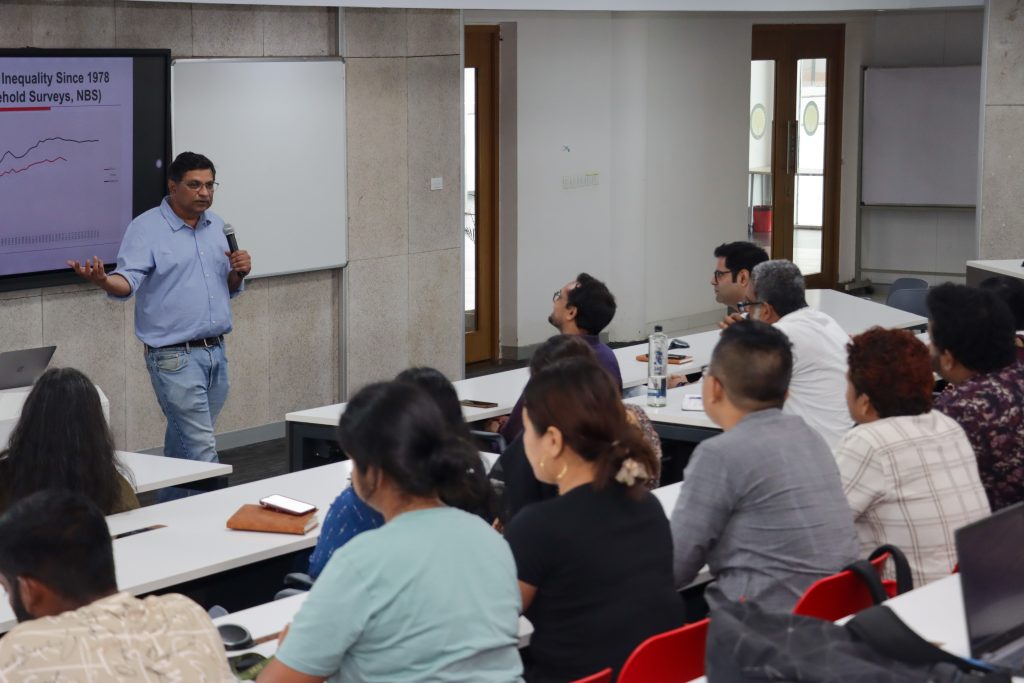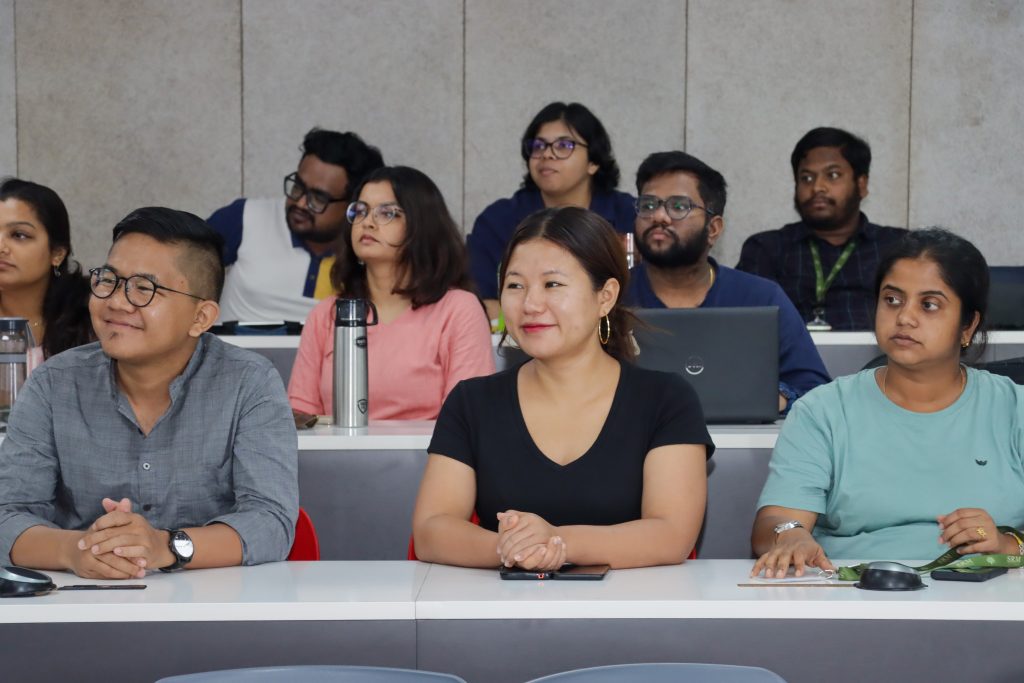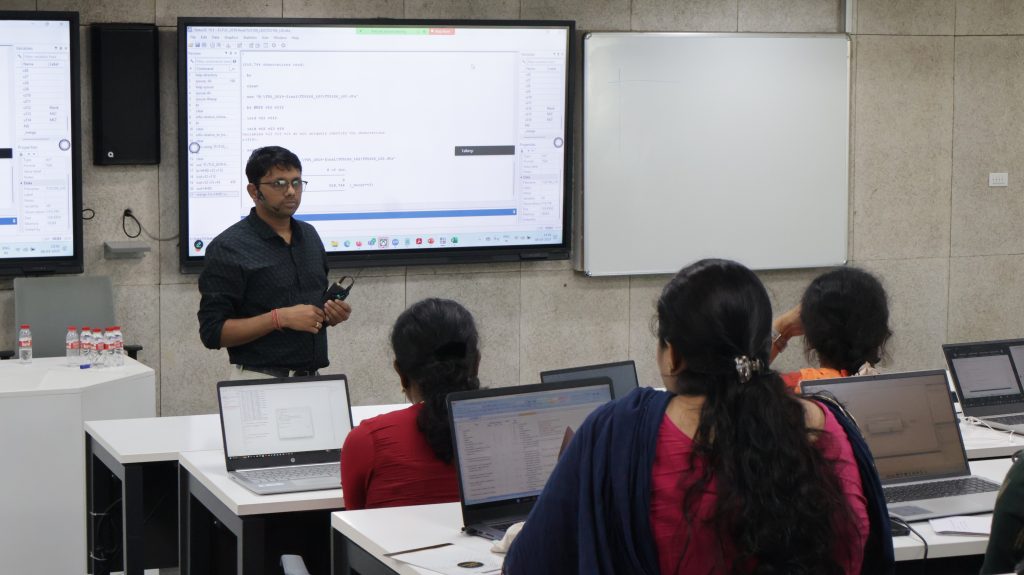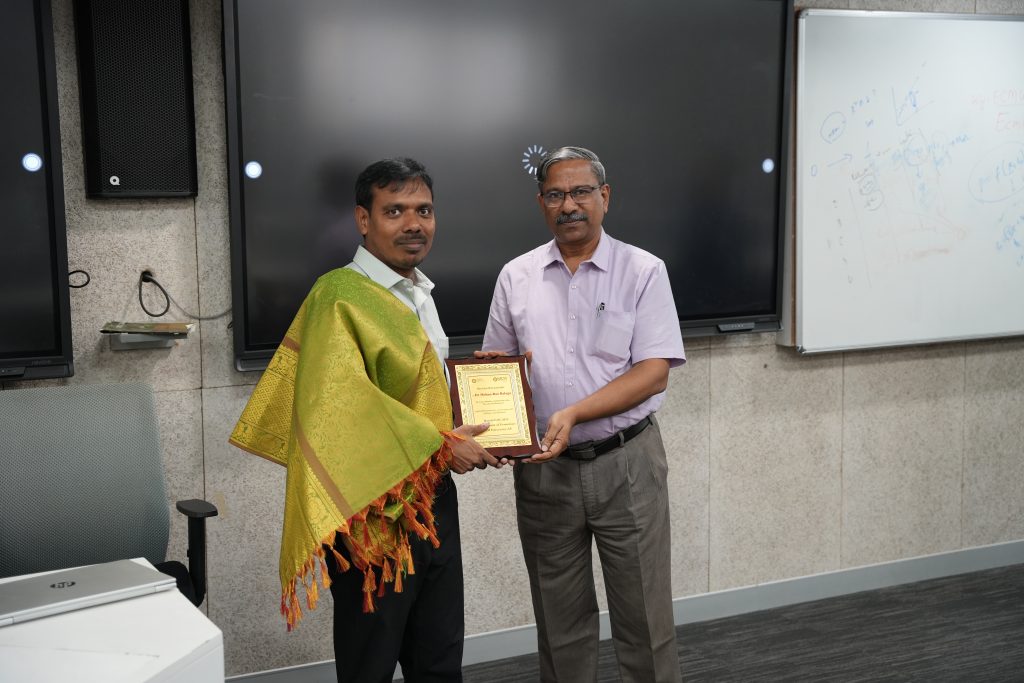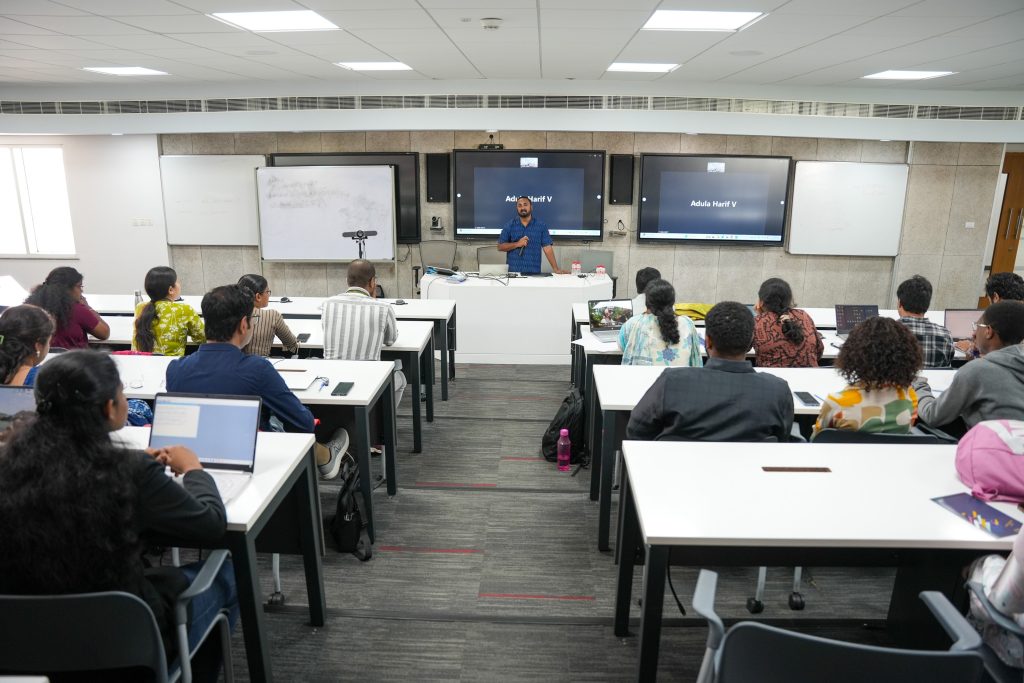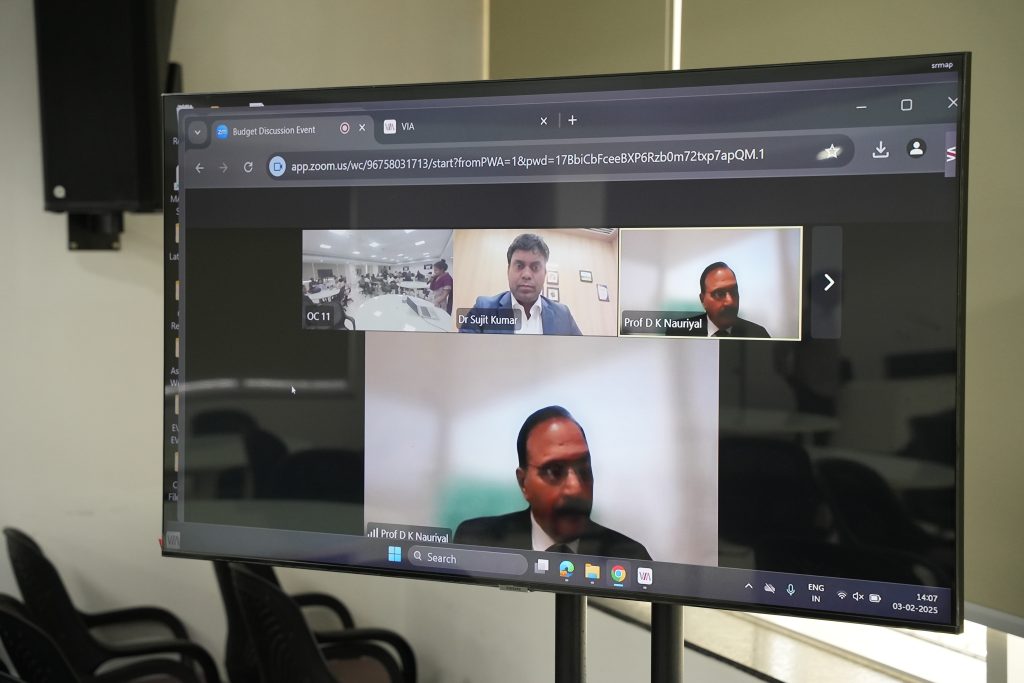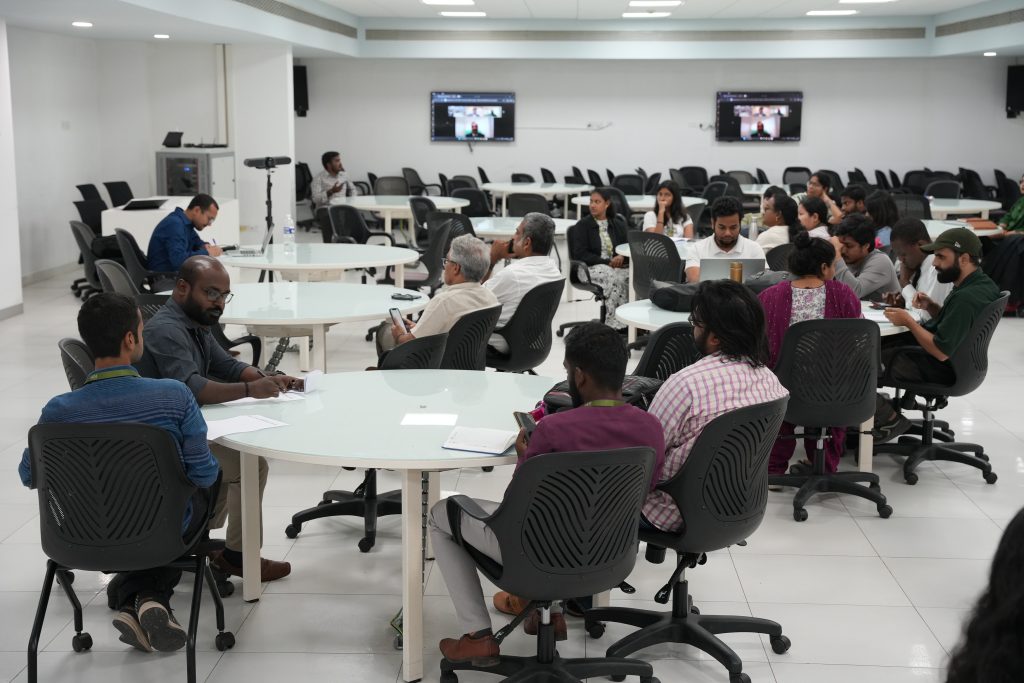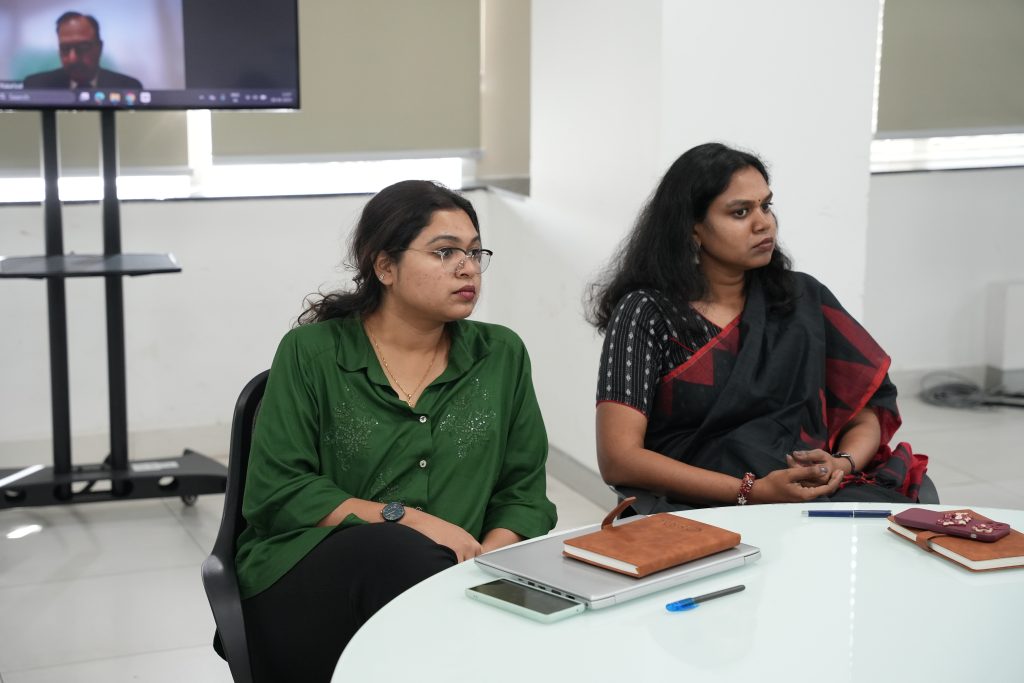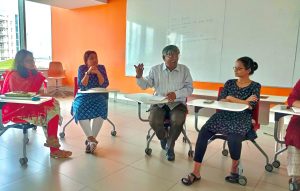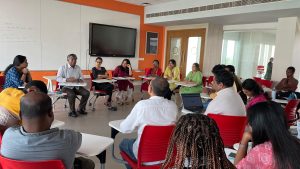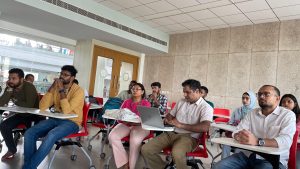- “Class and Inequality in China and India” Talk by Prof. Vamsi Vakulabharanam June 18, 2025
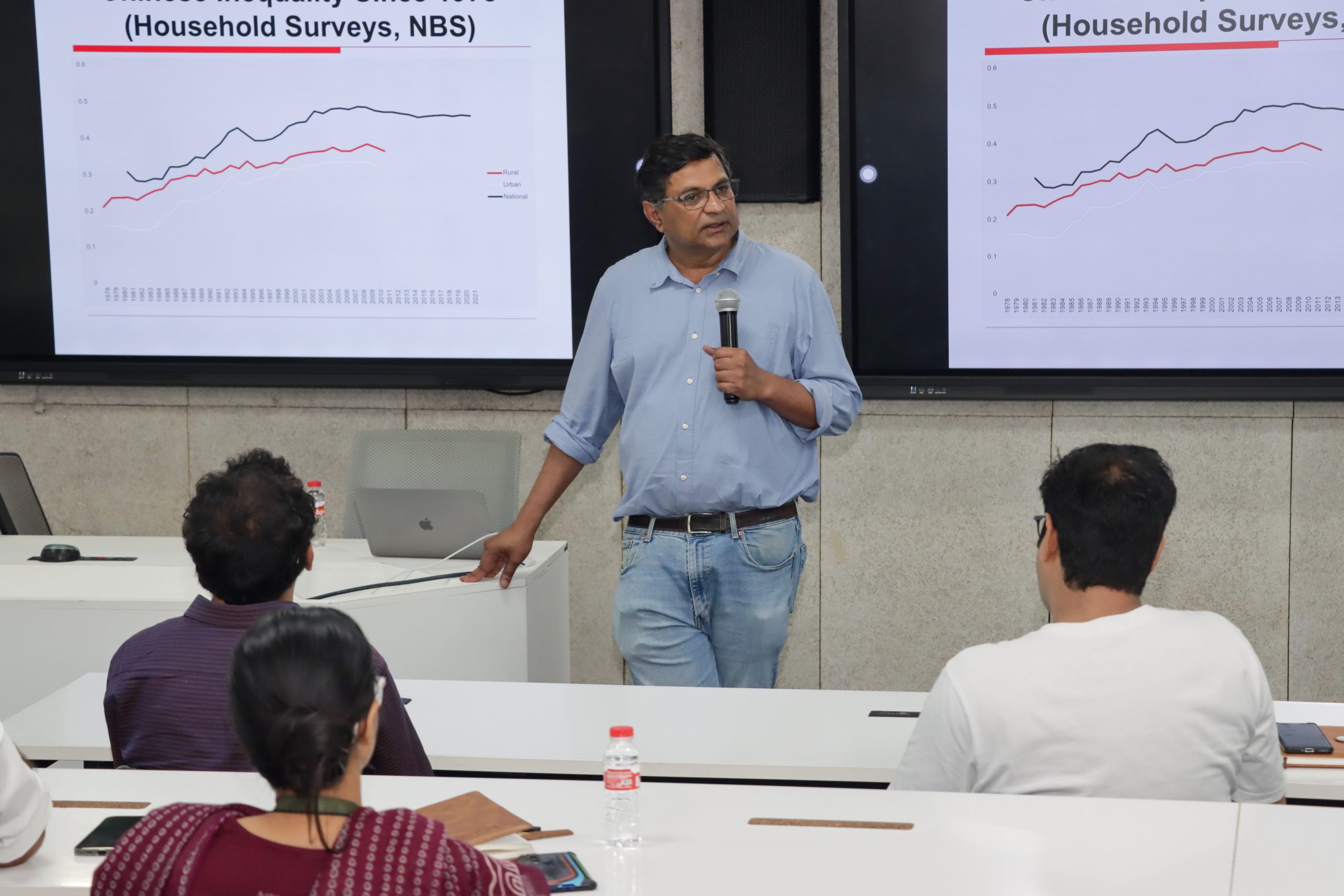 The Department of Economics hosted a talk titled “Class and Inequality in China and India” by Prof. Vamsi Vakulabharanam, Associate Professor of Economics at the University of Massachusetts Amherst on June 17th. Prof. Vakulabharanam, a former faculty member at the University of Hyderabad and City University of New York, has been associated with research institutions such as the Institute for New Economic Thinking (INET) and the India China Institute. He is a renowned scholar in the field of political economy, inequality and development studies with a focus on India, global capitalism and class-caste dynamics.
The Department of Economics hosted a talk titled “Class and Inequality in China and India” by Prof. Vamsi Vakulabharanam, Associate Professor of Economics at the University of Massachusetts Amherst on June 17th. Prof. Vakulabharanam, a former faculty member at the University of Hyderabad and City University of New York, has been associated with research institutions such as the Institute for New Economic Thinking (INET) and the India China Institute. He is a renowned scholar in the field of political economy, inequality and development studies with a focus on India, global capitalism and class-caste dynamics.In his talk, Prof. Vakulabharanam presented key ideas from his recent book Class and Inequality in India (1950–2010), offering a comparative political economy perspective on India and China. His lecture offered critical comparative insights into the evolution of class structures and inequalities in China and India, two of the world’s largest emerging economies.
Drawing on empirical evidence and theoretical perspectives, the speaker examined the socio- economic trajectories of both countries and highlighted the implications of rising disparities for long- term development and social stability. He traced two distinct phases in the post-independence period:1950–1980, marked by low economic growth but a decline in inequality (forming the lower part of a U-shape), and 1980–2010, characterised by rapid growth under neoliberal reforms and policies but a simultaneous rise in inequality.
The lecture highlighted three main contributions of the book:
- A class-based analysis of inequality, especially novel in the context of China.
- An exploration of how India and China have transformed the world economy post-1950, and how global economic dynamics have, in turn, reshaped these countries.
- A theoretical framework for understanding within-country inequality.
Prof. Vakulabharanam also engaged with frameworks such as varieties of capitalism, French regulation theory, and comparative urban inequality (e.g., urban Gini coefficient analysis in Beijing and Delhi), offering a nuanced critique on ideas from thinkers like Thomas Piketty and Simon Kuznets and of global inequality discourse.
Concluding his talk, Prof. Vakulabharanam emphasised, “If China and India genuinely want to add something novel to the world order, they have to break free from the European model and find their own way of addressing inequality, climate change, and technological innovation.”
The session witnessed active participation from faculty members and research scholars from the Easwari School. Followed by a lively Q&A session, engaging participants in discussions around development policy, economic reforms, and the political economy of inequality. This academic event marked a valuable opportunity for the university community to interact with an international expert and gain deeper understanding of comparative development challenges in Asia.
Continue reading → - Two-Day Workshop on Applied Econometrics & Its Applications in STATA and R March 27, 2025
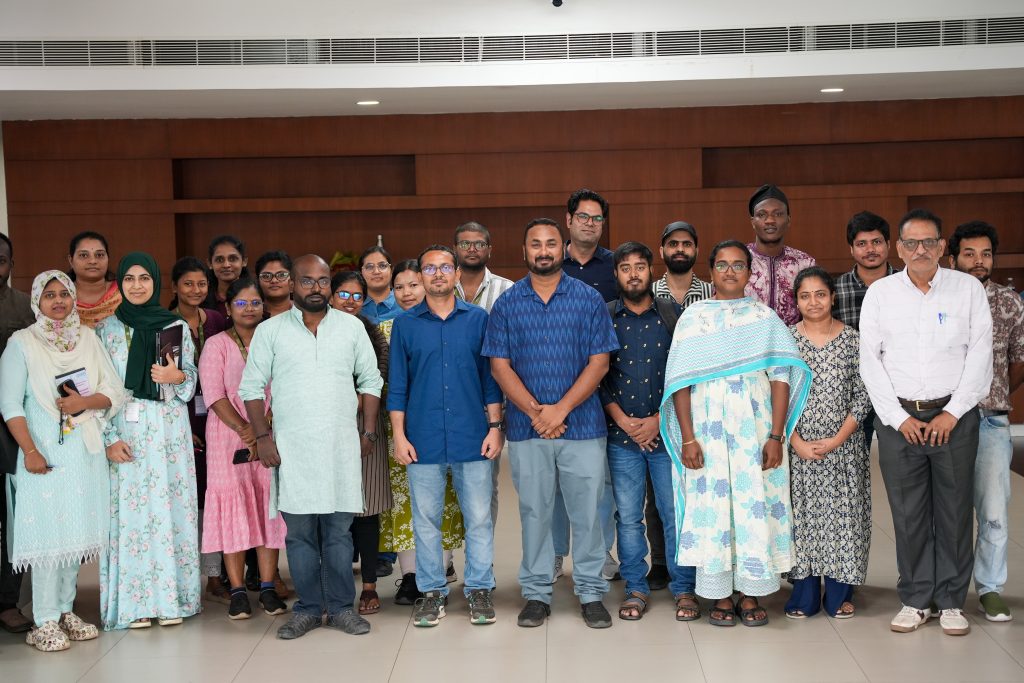
The Department of Economics at Easwari School of Liberal Arts successfully organised a two-day workshop titled “Applied Econometrics: Leveraging with Software and Databases” on March 7 – 8, 2025. The workshop witnessed the participation of approximately 40 attendees, comprising academicians, research scholars, and students from various institutions, including SRM IST, VIT-AP and Amrita University. The significant turnout reflected the keen interest in applied econometrics and the practical implementation of statistical software (R and STATA) for economic analysis.
The primary objective of the workshop was to provide a comprehensive understanding of econometric principles while emphasising hands-on training with statistical software such as STATA and R. Participants received practical exposure to key econometric techniques, including time series modelling, cross-sectional data analysis, and panel data estimation, thereby enhancing their empirical research capabilities.
The workshop featured four insightful sessions conducted by distinguished experts in the field of econometrics:
- Dr Anandarao Suvvari (IIT Goa) – Delivered an in-depth session on fundamental econometric techniques and their applications in STATA and R.
- Dr Mohan Rao Balaga (IIT Dharwad) – Provided a comprehensive analysis of time series methodologies, covering ARIMA, VECM, VAR, and ARDL models using macroeconomic and financial datasets.
- Dr Pratap C Mohanty (IIT Roorkee) – Delivered a session on cross-sectional data techniques, encompassing linear and non-linear models, instrumental variable (IV) estimation, and applications utilizing NSSO and large-scale survey data.
- Dr Vineesh Prakash (SRM University-AP) – Conducted an extensive session on panel data models, discussing Fixed Effects (FE), Random Effects (RE), Generalized Method of Moments (GMM), and dynamic panel models using CMIE ProwessIQ data.
The interactive nature of the sessions enabled participants to engage with the resource persons, deliberate on real-world econometric applications, and undertake practical case studies utilizing empirical datasets. The rigorous discussions and hands-on exercises significantly contributed to a deeper understanding of applied econometrics.
This two-day workshop proved an enriching academic initiative, equipping participants with essential econometric skills and strengthening their analytical capabilities in economic and financial data analysis. The positive feedback from attendees underscored the effectiveness of the workshop particularly in integrating theoretical knowledge with hands-on implementation.
Continue reading → - A Panel Discussion on Decoding the Budget 2025-26 February 5, 2025
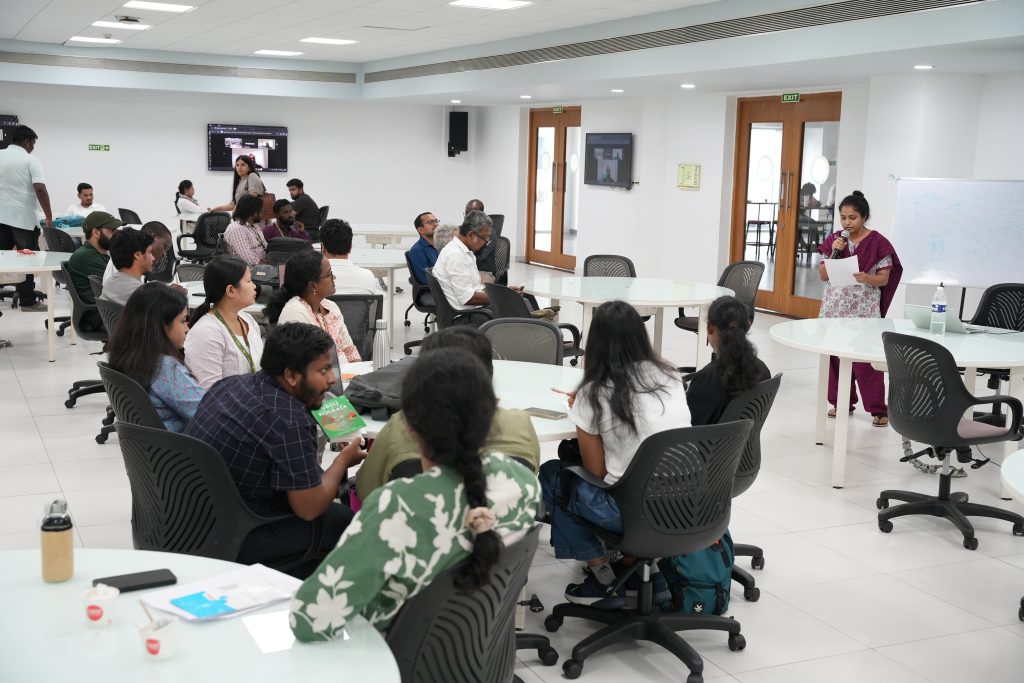
The Department of Economics at Easwari School of Liberal Arts organised a panel discussion titled “Decoding the Budget: Insights, Perspectives, and the Big Picture” on February 03, 2025. The event was designed to provide in-depth insights into the Union Budget 2025-26, focusing on fiscal priorities, economic implications, and sectoral impacts. The discussion brought together distinguished experts from academia and policymaking to analyse key announcements and their long-term effects.
The panel discussion featured three esteemed panellists:
– Prof. Vinish Kathuria (Director, Institute of Development Studies, Jaipur & IIT Bombay) – Expertise: Productivity Measurement, Economics of Regulation, and Environmental Economics.
– Prof. D K Nauriyal (Professor, Department of Humanities and Social Sciences, IIT Roorkee) – Expertise: International Trade, Development Economics, and Economics of Intellectual Property.
– Dr Sujit Kumar (Chief Economist, National Bank for Financing Infrastructure and Development – NaBFID) – Expertise: Banking & Finance, Infrastructure, and the Indian Economy.
The experts analysed the macroeconomic factors influencing the budget, such as inflation control, fiscal deficit management, and global economic trends. The panellists discussed the implications of the budget on critical sectors, including infrastructure, banking, environmental sustainability, and trade policies. The discussion highlighted significant policy changes to boost economic growth and social welfare initiatives. The Q&A session allowed participants to seek clarifications and gain deeper insights into budget-related policies and their long-term effects.
Students, faculty, scholars, and individuals interested in economic policy and financial analysis participate in the discussion. Participants also joined online as the event was in the hybrid mode.
The panel discussion on Decoding the Budget 2025-26 successfully gave attendees a clearer understanding of India’s financial and economic direction. The expert insights helped bridge the gap between budgetary announcements and their practical implications. Students, faculty, and policymakers benefited from the interactive discourse, enhancing their knowledge of economic policies and fiscal governance.
This insightful session emphasised the importance of informed economic discussions in shaping perspectives on national financial policies and governance strategies.
Continue reading → - An Insightful Lecture on Student Migration November 26, 2024
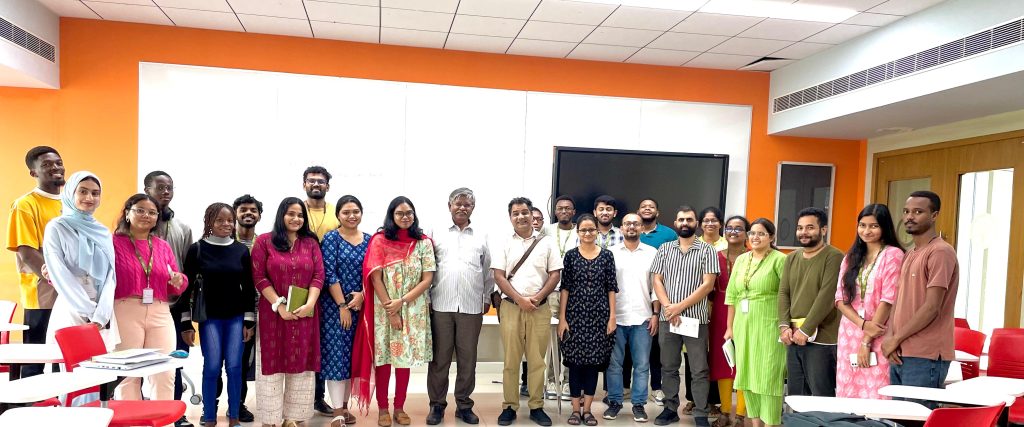
Prof. Irudaya Rajan, Founder Chair of the International Institute of Migration and Development and Distinguished Visiting Faculty at the Department of Economics, Easwari School of Liberal Arts, engaged with faculties, scholars and students on a compelling talk on “The Future of Student Migration” on November 22, 2024. Prof. Rajan delved into the crucial role of migration in shaping and redefining national demographics and offered valuable insights into internal and international migration trends, explaining their profound impact on labour markets, education systems, and policy-making. His talk sparked engaging debates and discussions, enriching the understanding of migration as a dynamic force in demographic change and national development.
During his visit, Prof. Rajan also interacted with faculty and students, discussing collaborative research projects and sharing his expertise. The session was a thought-provoking exploration of migration’s pivotal influence on global and local contexts, leaving the audience with much to reflect upon.
Continue reading → - Scaling Heights: Nilesh Bags an Internship at RBI August 9, 2024
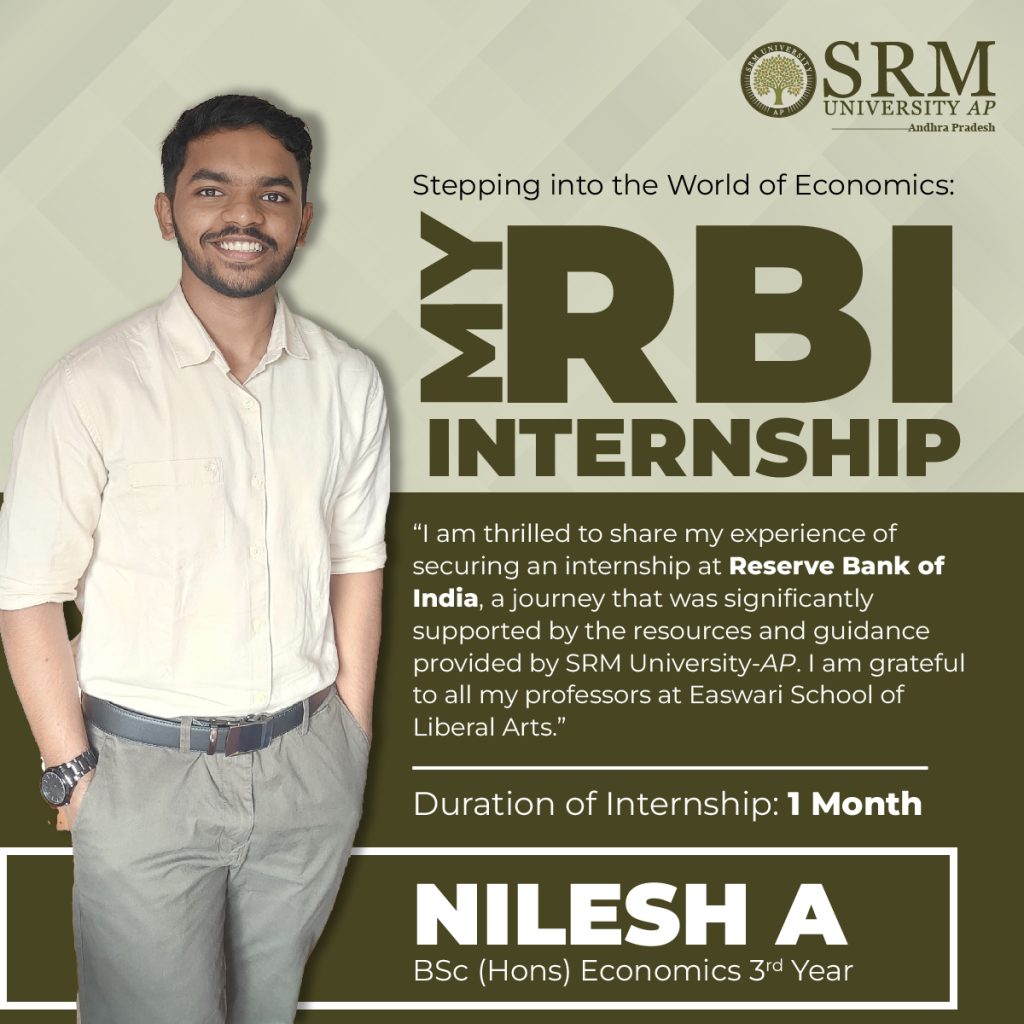
The Department of Economics proudly announces that Mr Nilesh A, a third-year B.Sc. Economics (Hons.) student, has secured a highly coveted one-month research-based internship at the Reserve Bank of India, Mumbai. This internship is under the Department of Economic and Policy Research (DEPR).
“I am thrilled to share my experience of securing an internship at the Reserve Bank of India, a journey that was significantly supported by the resources and guidance provided by my university. I am grateful to all my professors at Easwari School of Liberal Arts at SRM University-AP for their unwavering support and encouragement. This internship is a pivotal step in my career, and I am excited about the future and eager to continue building on this incredible foundation,” stated Nilesh while expressing his gratitude for this once-in-a-lifetime opportunity.
Internships are remarkable opportunities to gain experience and exposure, build a strong network, and hone the skills you already possess. The Easwari School of Liberal Arts of SRM University-AP provides academic and research internships prioritising experiential and industry-based learning to help students cultivate a refined practical skillset.
Continue reading →

The Department of Economics is inviting Distinguished Visiting Professor, Prof. Rathinasamy Maria Saleth for two esteemed seminars on novel topics of social relevance. Prof. Saleth will talk on “Climate Change, Water, and Adaptation” on November 29, 2023, and “Social Science Research: Theories, Models, and Empirical Analysis” on November 30, 2023.
Join the sessions and gain insights from the seasoned academician!
About the Speaker
Prof. Rathinasamy Maria Saleth is currently a Distinguished Visiting Professor at the Department of Economics, Easwari School of Liberal Arts, SRM University-AP. He is regularly affiliated as an Honorary Professor at the Madras School of Economics, Chennai.
Prof. Saleth received his MA from Madurai Kamaraj University, Madurai (1979), MPhil from Jawaharlal Nehru University, New Delhi (1981), and PhD from University of Illinois, Urbana-Champaign, USA (1989). He works in the areas of water resource management, institutional change, development policy, and impact assessment and has published three books, six edited volumes, and over 100 research papers in journals and edited volumes related to these areas.
Prof. Saleth has also won awards for some of his papers, books, and works from professional organisations such as the Indian Society of Agricultural Economics, the American Water Resources Association, the International Water Association, and the University of South Australia. He has also been a consultant to the World Bank, Food and Agriculture Organisation, Asian Development Bank, UN Economic and Social Council for the Asia and the Pacific, and UN Environment Programme.
Talk 1: Climate Change, Water, and Adaptation
Abstract: This presentation covers the nature and magnitude of the impacts of climate change on water resources and possible coping and adaptation options both from global and national perspectives. The presentation starts with a discussion on the leading causes of climate change, especially the cumulative effects of global warming caused by greenhouse gases and related environmental consequences from human-induced economic activities and ecological disturbances. It, then, shows how the impacts of climate change are manifested both at the global and national scale in terms of the spatial and temporal patterns of precipitation and water availability and the resultant implications for water, agriculture, and economy. Although climate change is caused essentially by non-hydrological factors, the water sector continues to be the main medium through which most of its impacts are transmitted to the agricultural sector in particular and other economic sectors in general. As such, it is but natural for the adaptation/coping strategies also to be designed at the point of the impacted sectors, though, admittedly, general mitigation strategies go far beyond these sectors. The presentation, finally, concludes by delineating feasible adaptation strategies for the water sector, which include not just demand management options but also supply management avenues, especially those involving institutional changes and infrastructural developments.
Talk 2: Social Science Research: Theories, Models, and Empirical Analysis
Abstract: This presentation covers the theoretical, methodological, and empirical aspects of social science research, especially from the perspective of young research scholars. It starts with a discussion on the nature, rationale, features, and types of building blocks of social science theories. After an analytical description of three broad types of models, i.e., simple, interactive, and path-based models, the presentation provides concrete illustrations, particularly for the interactive and path-based models using a few empirical case studies. These illustrative case studies will show how to conceptualize, operationalize, and empirically evaluate the research problems in different contexts. The presentation, finally, concludes with the discussion on some of the additional methodological, practical, and data-related aspects of importance in social science research.
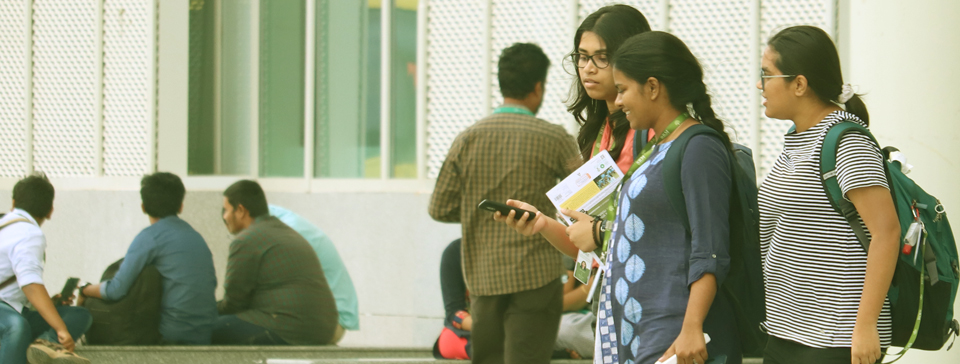
Pandey, G. (2020). “Sources and Drivers of Agricultural Growth in Jharkhand” Paper is awarded with Gold medal on Research Day at SRM University held on 29th January 2020.
Articles
Dr Ghanshyam Pandey - Budget 2023-24 is not a complete package for the Agricultural sector
Prof Balaji Vejju - Union Budget 2023: A big push for MSME sector development
Dr Manozor Hassan - Budget 2023-24 And India’s Imports, Exports, And Current Account Deficit
Md Murtaza & J vineesh Prakash - Is Gobardhan Scheme A Lasting Solution To Stubble Burning?


